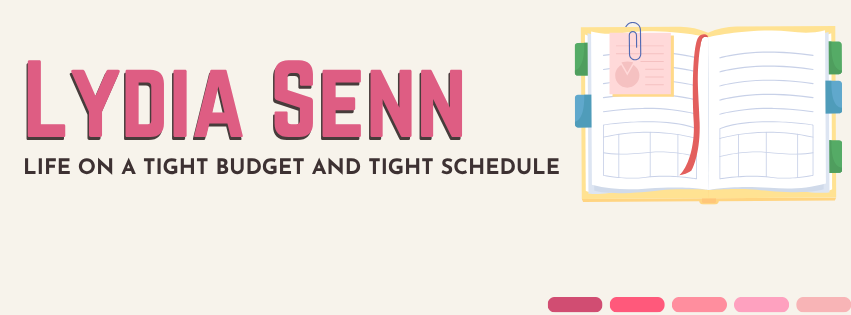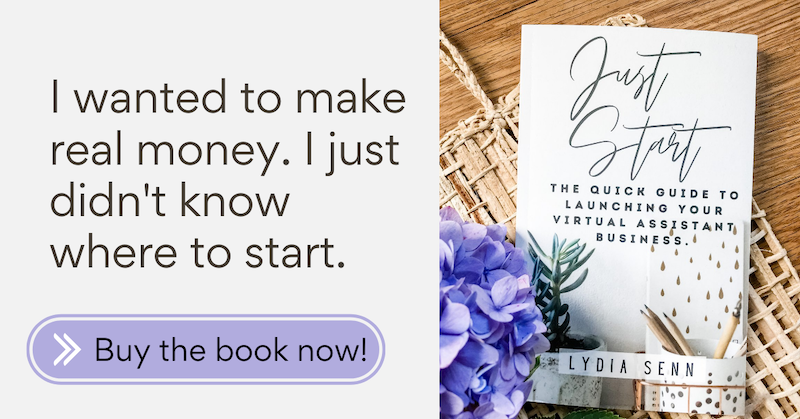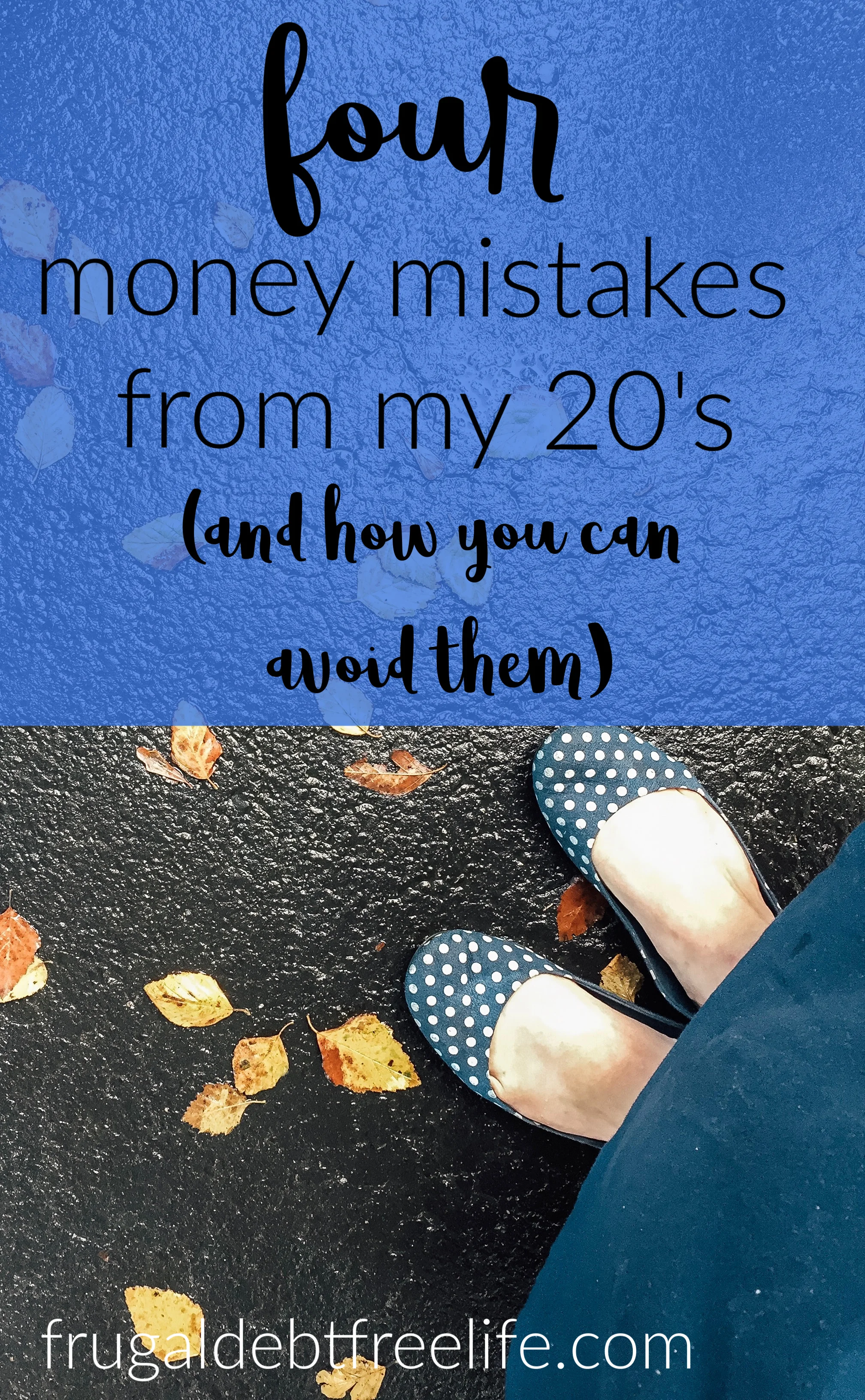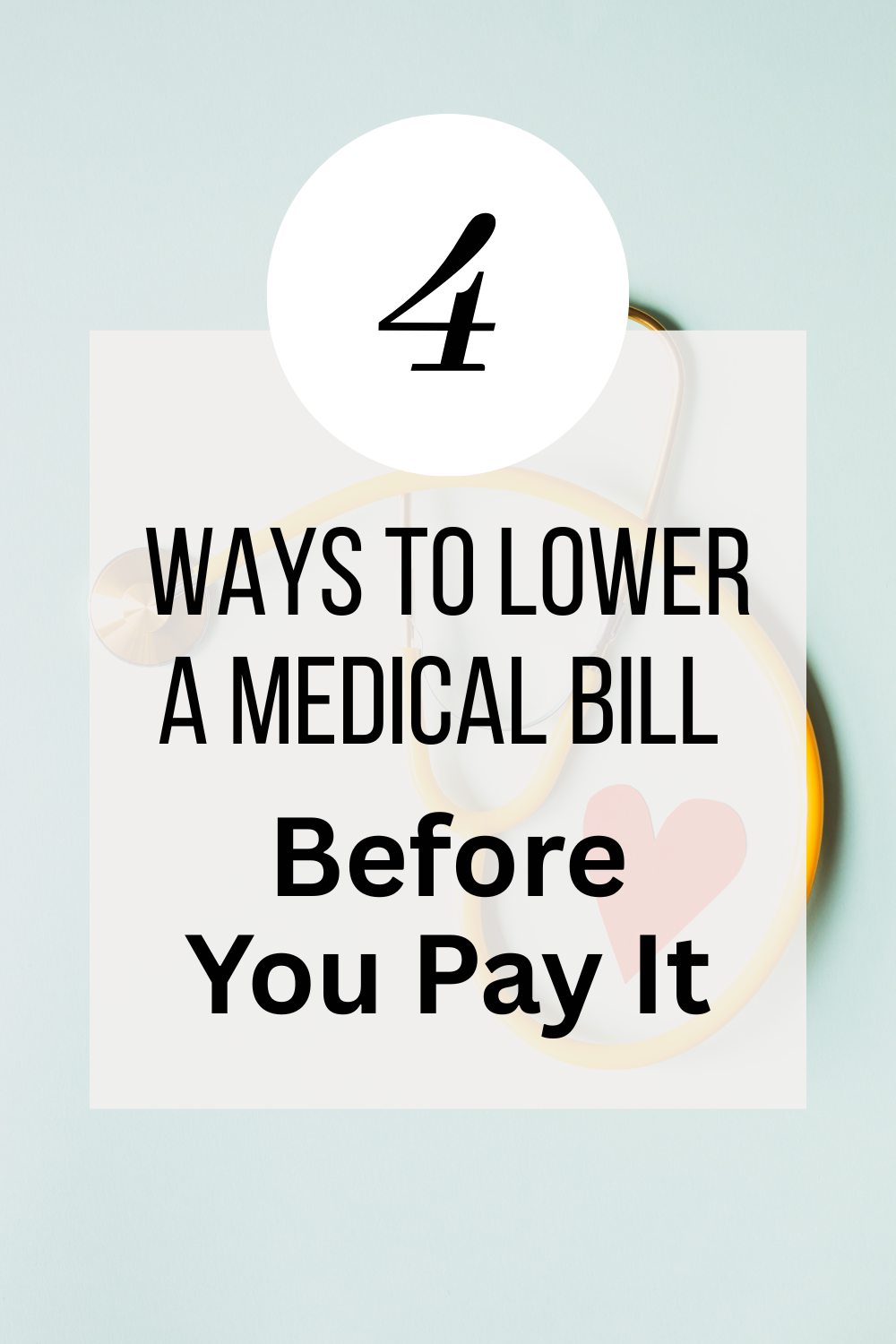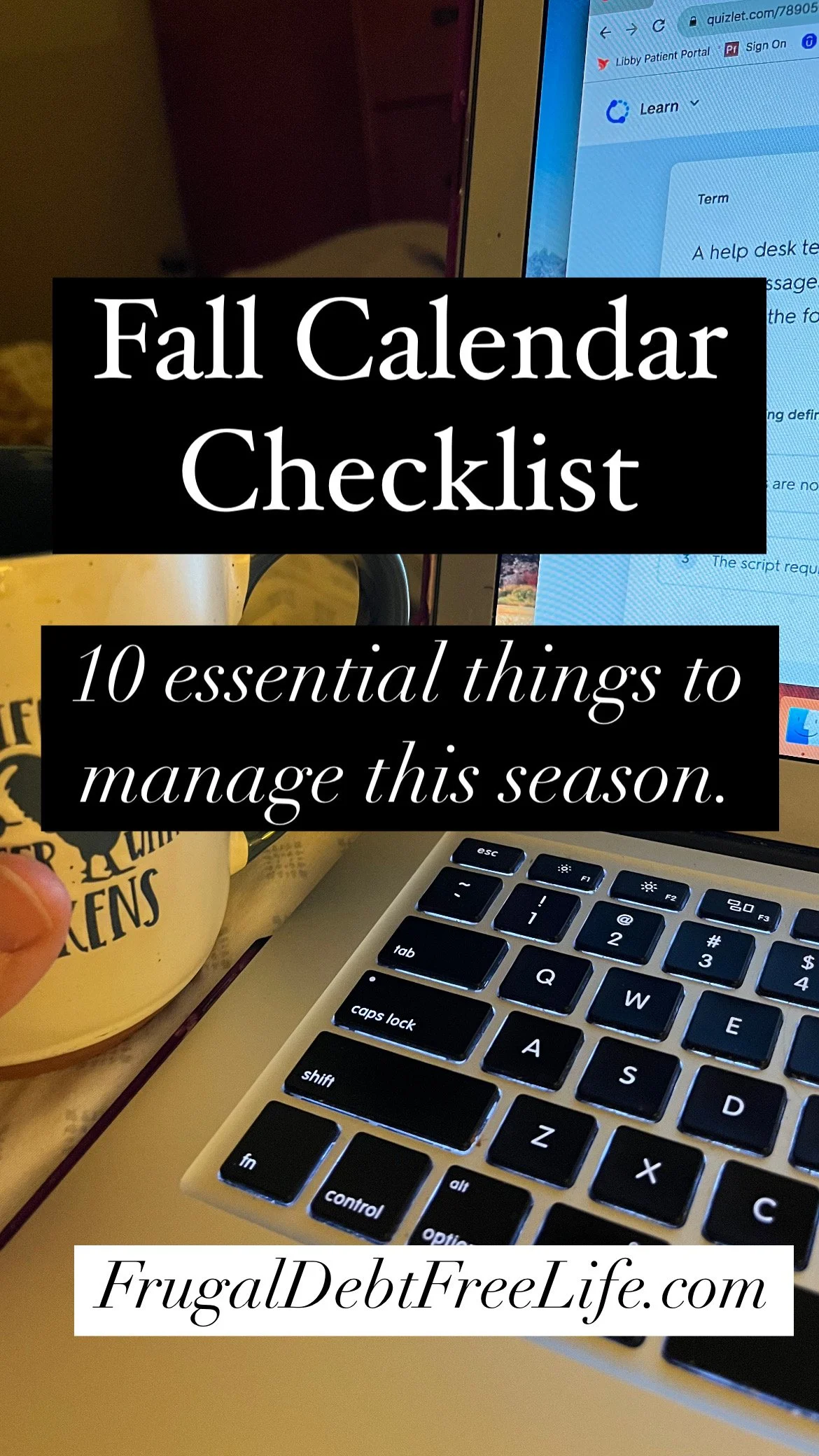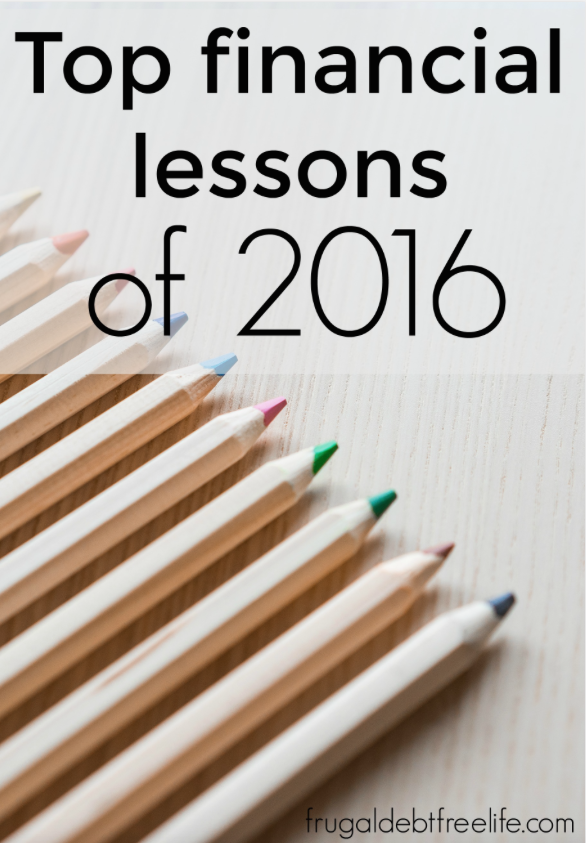4 money mistakes I regret and how you can avoid them
This is a conversation that we need to be having more of because pretending like we're perfect little money angels doesn't help anyone.
This is a conversation that we need to be having more of because pretending like we're perfect little money angels doesn't help anyone.
1. Buying a house when I didn't have adequate savings.
After Jason and I got married, we were living in Atlanta. And at the time, the rent in Atlanta was very reasonable. You could get a really nice two-bedroom, two-bath apartment for $750/month, in a nice neighborhood, in a gated apartment complex.
But you could also very easily get a mortgage and have a house payment that was right about the same price. So you get a ton more house for the same amount of money.
If you're laughing at me because you already see my flawed logic, yes, I know now. I wish I had known when I was 23.
We did not have an emergency fund. We did not have 3-6 months of living expenses. I don't even think we had $10,000 in the bank when we bought our house.
Why did anyone write us a mortgage? Who lent us this money?!!!!
Obviously — you know when you buy a house — anything that breaks is your responsibility. You have to fix it. And if you don't have the money to fix it, it either stays broken or you put that on credit.
So when the economy went to crap and my husband took a pay cut and I lost a job on the same day, imagine what home ownership with no savings account was like for us.
Stupidest decision ever.
I guess it would be not having an emergency fund would be my biggest regret, but also bringing a home that I was responsible for into that mix. And then having to figure out how to get rid of that home.
I still have a lot of anxiety when I think about it.
I know that I need to forgive myself and move on and let it go. I've learned a lot of lessons from that and I have helped teach people through that. But I still carry a lot of shame.
The same situation — buying a home with a very small down payment. I think we put 3% down. The recommended amount to put down is 20%. That's going to greatly reduce not only your monthly payment but the amount of interest you're going to be paying over the life of that loan. By a lot.
2. Not using credit responsibly.
Here is where I differ from a lot of people in the debt-free community: I don't think that credit cards are evil.
But personally, no, I cannot have one because it lacks accountability for me.
I have a shared bank account with my husband. If I spend a bunch of money that I don't need to be spending, it's right there in black and white where I could very easily look at it.
But a credit card just does not have that accountability for me. I don't think about it until the bill comes. I don't have an emotional connection to that money. I'm basically spending someone else's money for a limited amount of time. So I don't need to have a credit card.
There are people who have credit cards. They pay them off every single month. They use the points. I think that's great for them.
I spent years of my life not using credit responsibly. In fact, when we went to buy that house that I talked about a minute ago, our realtor pulled our information, she just looked at me and said, "You have no credit." "I've never seen this before." And yet, we still got a mortgage.
3. Thinking that I could afford something just because I can make the monthly payments on it.
We're talking about cars. We're talking about furniture. We financed so much stuff when we were first married. We were stupid and foolish. We should have gone through Financial Peace University. (In fact, from henceforth, if I know you and you're getting married, that's what you're getting as a wedding gift — Financial Peace University.)
We thought, "We need a new couch. Let's go to Rooms To Go. We can get it for $98 a month.” If I could go back and talk to that girl, I would probably just smack her a few times.
Being able to afford something and being able to make monthly payments on something are two entirely different things. You can afford something when you have the money set aside for it and you can pay cash. Making monthly payments means you are taking away money from your future self, from your savings account, and from your goals.
4. Not tracking my spending.
I still struggle with this sometimes because I just get into auto-pilot and I get lazy. But tracking your spending is really, really important. Seeing where your money is going every single month not only keeps you accountable in the moment ("If I spend $65 of my grocery budget at Target." Not a great idea.), but it also helps you stay on track, so you know exactly where your money is going, exactly where your budget is leaking, and where you can improve upon things.
I would love to know some areas where you have made financial mistakes. Also, are you like me and you just carry around some of that shame? I'm very quick to forgive other people's mistakes. It is harder sometimes to forgive my own. I don't know why that is. It's been years. It's been a decade. I've lived an entire life since then. It's time to just let it go and move on.
Everyone makes mistakes. It's important though that we move past them, that we don't live in them, and that we don't continue to repeat them over and over again.
A mistake can easily become a habit, and then that habit can become bondage. I don't want to live in that and I don't want you to live in that either.
Four things to do after a financial mistake
We're not all perfect little money angels. And we don't need to pretend to be. Everyone makes mistakes. That is part of being a human. That is part of the learning process and the growing process. Mistakes happen.
But what do you do after you have had a financial upset or you have made a financial mistake?
It's tough. It's hard. It hurts sometimes. It hurts to realize that you did something stupid, but it also hurts to have to fix it. I want to talk about what to do when you have made a financial mistake and how to come back from that.
We're not all perfect little money angels. And we don't need to pretend to be. Everyone makes mistakes. That is part of being a human. That is part of the learning process and the growing process. Mistakes happen.
But what do you do after you have had a financial upset or you have made a financial mistake?
It's tough. It's hard. It hurts sometimes. It hurts to realize that you did something stupid, but it also hurts to have to fix it. I want to talk about what to do when you have made a financial mistake and how to come back from that.
1. Forgive
Forgive yourself, if you're the one that made that mistake. Forgive your spouse, if they're the one who made the mistake.
Don't continue to hold it over their head. Don't beat them with it. Don't make them feel stupid. Because, at some point, you're going to make a mistake, and they're going to remember how you treated them.
Be kind over being right. I like to be right. I don't always like to be kind as my husband. And the things that I regret the most in the world — the way I behaved when I was angry, sad or upset.
So forgive yourself and know that your mistakes do not define you. Forgive the person that you love because you love them and you want to receive forgiveness yourself.
2. Find a place in your budget to fix it
If it is a situation where you're going to have to be paying off money, or if it's a situation where you're going to have to find the money to pay for it — sit down and take an honest look at your budget.
See how long that's going to take you to fix the mistake. See where you can move money around. Or you're going to have to take money out of your savings or your emergency fund or from your entertainment or grocery or what-have-you.
Sit down, make a new budget, fix it.
If you are married, work together. Your relationship is more important than money. People first. Let that be your mantra. People first.
3. Figure out how the error happened
If it wasn't an intentional thing like somebody spending money where they shouldn't have without discussing it, or if it's a situation where you forgot to account for something — figure out how you can make that not happen again.
A couple of years ago, I forgot to budget for our termite letter. It was over $200, and I completely forgot to put it in our January budget. I wrote it down in my planner for the following January and I set an alert on my phone.
Set yourself up a system so that you don't make the same mistake over and over again.
4. Come up with some extra income
Now I realize that that advice makes you want to throw whatever it is you're reading this on across the room. I get that, like, money just doesn't rain down from the sky, Lydia. I know.
But you're going to have to find some. That may be through creating a side hustle.
Maybe through selling some things on Poshmark, Mercari or eBay. That may mean selling some things on Facebook Marketplace. I do it all the time — not necessarily to account for budgeting errors, but for extra things that I want to do or just to get some of those crap out of my house.
It might mean having a yard sale. It might mean babysitting. It might mean taking on extra shifts. But see if you can come up with some extra income as quickly as possible.
It's hard. I know it's harder than it sounds. Me just saying come up with extra income doesn't help. It's going to be work. It's not easy. But you can do it.
My top money lessons from 2016
Happy New Year! I am so excited about a glistening new year full of infinite possibilities. It's like the first page in a new notebook. I just get giddy with the idea of filling it with new ideas and goals.
Happy New Year! I am so excited about a glistening new year full of infinite possibilities. It's like the first page in a new notebook. I just get giddy with the idea of filling it with new ideas and goals.
Today though, I wanted to take a look back at the top financial tips and goals from 2016. So let's dive in.
1. You have to, have to, have to plan for the unexpected.
2016 was just the year of unexpected. Everything in my house broke, we had some major health costs arise and it was just an expensive year.
It is imperative to have a rainy day emergency fund. I know it's hard to build one up and keep it thriving when life throws one thing after another at you. But not having the money in place will only make things worse.
Here are a few ways to build that fund up FAST.
2. Just because you have an irregular income doesn't mean you can't budget
I now earn a full-time income from home now. Which is awesome. (If you want to learn more about how I do that I will have a course coming out in two weeks!)
But because I run my own business my income can be irregular. While we really only live off one income, we still have to have a plan for that money.
When we first started budgeting we had a very irregular income and it took some tweaking to get it right. But it can be done.
Here are my top tips for that.
3. Living on a budget can lead to burn out
There comes a point when you've spent so much time being frugal you just want to scream. You want to stand in the middle of your yard and scream your head off. But don't. Your neighbors will think you're crazy. Also, you will get past this moment of frustration.
Ask yourself some questions:
Why are you doing this? Why are you living the way you're living? Is it because you're in debt and don't want to be anymore? Is it so you can buy a house? Pay for college? Help those in need?
Here are my tips for when you're so tired of being frugal you could scream!
4. If there's a will there's a way
Last year we had to replace our roof. It needed to be done quickly and we didn't want to deplete our entire emergency fund to do it. So we had to go into barebones mode. It was so reminiscent of when we were first getting out of debt.
But when all was said and done we saved up an extra $6,000 in six months on TOP of our regular savings goals.
5. You have to communicate
My husband spent much of 2016 on the road. And I'll be honest, I used this as an excuse to get off budget. Having a spouse that travels can derail your budget plans if you don't communicate about money. It's worth it. Trust me. Hard but worth it.
What about you? What money lessons did 2016 teach you?
